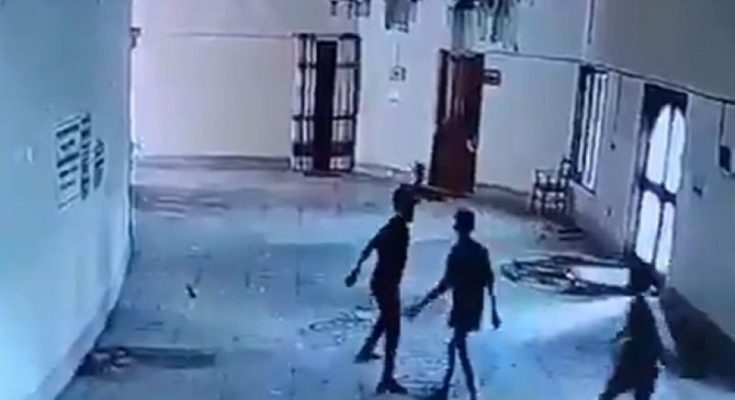#India# Bangladesh# Rabindranath Tagore# Rabindranath Tagore House Damage# MEA
IBNS-CMEDIA: Bangladeshi administration has filed a case against 50 to 60 people, including 10 named individuals, after the ancestral home of Nobel laureate Rabindranath Tagore, known as Rabindra Kacharibari, was destroyed in the country’s Sirajganj region.
The iconic house was targeted by a mob on Tuesday.
Nobody has been arrested yet, Md Almas Ali, officer-in-charge of Shahjadpur Police Station, told The Daily Star.
“We have recorded the case and are trying to identify the attackers following CCTV footage. We are trying to nab the attackers,” he added.
Md Shahnewaz, of Rooppur village, is the key accused in the case statement, the OC said.
Officials shut the home after the attack.
Md Habibur Rahman, custodian of Shahjadpur Kachharibari, told The Daily Star, “As per decision from higher authority we have kept the Kachharibari closed for an indefinite period. We have already issued a notice of closing the site today.”
Md Mainul Islam, head of the Bangla department at Shahjadpur Rabindra University said such an attack on the historic structure was never accepted.
It must be investigated properly. Also, culprits must be punished,” Mainul Islam told the newspaper.
India condemns
Meanwhile, Ministry of External Affairs spokesperson Randhir Jaiswal condemned the attack on the historic structure
“The violent act is a disgrace to the memory and the inclusive philosophy and teachings that the Nobel Laureate espoused in Bangladesh,” he told reporters.
He further said: “The attack falls in the broad pattern of systematic attempts by extremists to erase the symbols of tolerance and eviscerate the syncretic culture and the cultural legacy of Bangladesh. We urge the interim government to rein in the extremists, and take strict action against the perpetrators to prevent reoccurrence of such incidents that sadly have become a repetitive feature.”



